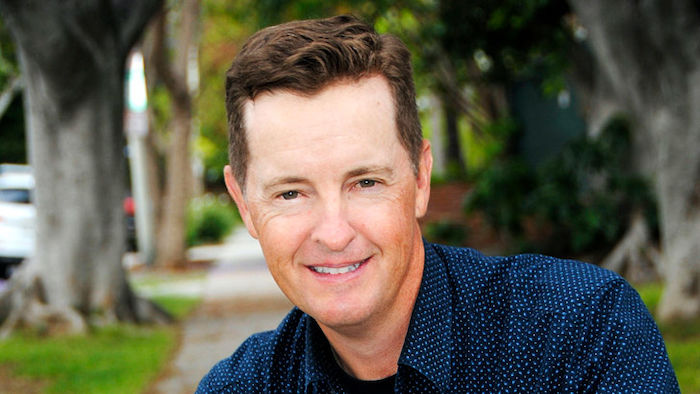Matthew Reilly on mysteries and making money
By Alan Deans
One of the joys Matthew Reilly gets from writing thrillers is to travel. His research takes him to plenty of exotic places - the pyramids in Egypt, Easter Island and the ancient Chichen Itza Mayan city in Mexico. No matter what evil is pursuing his heroes, and there is always plenty lurking, his plots captivate readers' imaginations in part because of their ancient and evocative settings.
Right from the opening pages, his latest book - The Two Lost Mountains - dumps readers into a life and death fight against evil in a sacrificial ceremonial chamber cut into the Rock of Gibraltar.
Before drawing breath, we're swept to a new theatre of action as the younger brother of the King of the Underworld is rescued from an abandoned royal prison in Algeria. Capping it all, an order of nuns in Red Square, Moscow, become victims of a dreadful atrocity. All this in the first 12 pages. If you're not instantly gripped, you never will be.
One favourite Reilly location is featured in his apocalyptic The Secret Runners of New York.
"(As a writer) you can put the head of the Statue of Liberty in the water," he says.
"You can make the city crumble. New York is the world city, which is why in alien movies they are always trying to destroy it.
"I tell people who want to be writers, Tolkien could not have written The Lord of the Rings growing up in Australia. He could only write that growing up in England, with all those castles and henges and the rolling hills. So, I go and see a place and immerse myself in it."
Reilly also devours non-fiction. Think books on physics, astronomy, and history.
"If I'm in a second-hand bookstore, I'll find a book like The Atlas of Mysterious Places which seeks to unravel mysteries. In The New York Times, on weekends, the science section often looks at new discoveries. There are always things to stuff into your brain. You don't just get an idea for a book by sitting on a beach, stroking your chin, looking at the sky," says Reilly.
"The best example I can give you involves The Tournament, a historical thriller that I wrote. I read over the years about Henry the Eighth, Queen Elizabeth the First, and how she never married. That book was about beating the Spanish Armada and Francis Drake.
"I also read about Islam and how it went into decline after Suleiman the Magnificent, and I got more ideas. Then I read about a junior chess champion, and said to myself: 'What if the Sultan of the Islamic Empire, to impress the world, invited every king to send his champion at chess to compete in a tournament?'
"Suddenly, all these things I had read just went boom, boom, boom. And, in one day, on several sheets of notepad, I wrote out bullet points for the whole story of The Tournament. That was from years of reading. I read a whole lot of stuff, it sticks here, and then when I need a story, it comes together."
Reilly says that his writing, at times, also delivers a real-world prescience. In The Secret Runners of New York, Earth is enveloped by a gamma radiation cloud that threatens all forms of life. That triggers riots as the poor rise against the rich.
"The wealth inequality was something that I noticed and, bringing that to COVID-19, I had people say to me: 'Your book is coming true'.
"The riots here started out of Black Lives Matter and George Floyd's death. But, in my neighbourhood, graffitied on the wall, was 'Eat the Rich'. COVID-19 has exposed that there is a health system for the wealthy and the health system for everybody else.
"There have been a lot of books (lately) about viruses, like the ones which turn people into zombies. I'm a fan of your good zombie apocalypse story, so I would take that into more of a fantastical zone. But the social politics of it is incredibly relevant, and that is something that inspires me," he says.
Reilly completed an arts and law degree at the University of New South Wales, part of which included making short action movies. When he later applied for a job at law firm Allens, one interviewer asked whether that was an indication that he didn't really want to become a lawyer.
"I went 'no, no, no' at the time. But he was absolutely right. I wanted to be creative," says Reilly.
He did work as a paralegal, however, after finishing law school just in case his true passion didn't ignite.
So eager was he to be a writer, that Reilly self-published his first book - Contest. He designed the cover and had 1000 books printed at a cost of $8 each.
"I did it to get noticed by a major publisher. The goal was to get the book into bookstores on the assumption that a publisher would go to see where their books were on the shelves and what the competition was doing. That's exactly what happened.
"Cate Paterson from MacMillan walked into the now extinct Angus & Robertson in Pitt Street Mall, saw my book, bought it, read it and rang my parent's home number on the copyright page," says Reilly.
Paterson remains his publisher to this day, 17 books later.
The author tells how he received an advance of $6000 for his second novel, Ice Station.
"The way the book world works is that you don't get any royalties until you earn out that $6000. If you are due $3 a book, then you have to sell 2000 copies," he explains. Ice Station quickly sold its 30,000 print run. He received an additional $84,000 and became a full-time writer, confidently adopting the philosophy that each book had to be better than the last.
He likens writing books to a running a marathon. If he drafts 10 pages in a day, he will print out every one. The pile steadily grows. It takes him 12 months to write a book. About half of that time is writing the first draft, and the rest revising the work until he's happy. One strict rule is that he has to finish each book before starting another. The work is then stored on a USB drive, which he keeps on a ring along with his car key and house key.
"It's got the last eight books I have written on it, just in case the house burns down," he says.
So, with eight million now in total book sales, what lies ahead for Reilly?
"I don't have an aspiration for prizes. I find them confusing. There are too many of them. But I get tremendous joy seeing a long line of people coming to get their books signed in a shopping mall. I'm in the joy business. I'm trying to give readers joy - a few day's or week's escape from the world."
But he does have one goal that has proved to be elusive. He left Australia in 2015 with the goal of writing and directing a feature film. One of his early meetings in Hollywood was with Greg McLean, the Australian director and producer of Wolf Hall fame. He then introduced him to Stuart Beattie, Australian writer of Pirates of the Caribbean.
"I golf with movie producers and people who love story as much as I do," says Reilly.
He sold the rights to his Jack West books to Twentieth Century Fox, but that deal expired. The option now rests with HBO Max and Warner Brothers, which are looking at a television series.
"You tend to think that it will be easy. I've sold my books to Paramount, Disney, Fox, Sony, ABC, Spyglass and Sony again. For some reason, they don't make them. Paramount bought Ice Station, but the executive who did that left the company and the new guy killed the old guy's projects.
"I don't think authors realise what it involves, and just how many giant, flaming hoops you have to jump through before getting on screen. Game of Thrones has shown that television is perfect for adapting from a book. They are the perfect size for eight episodes, which is now a season for television," says Reilly.
As to role models, Reilly's is someone he never met - novelist Michael Crichton.
"More so than say Lucas or Spielberg, Crichton was the writer of novels, television and film, and he was a director. He's the guiding light for me. I was approached by his estate to complete one of his novels, because when he died he left unfinished manuscripts. It didn't work out in the end, but I got to read 100 pages of an unfinished Crichton book."
Get stories like this in our newsletters.



